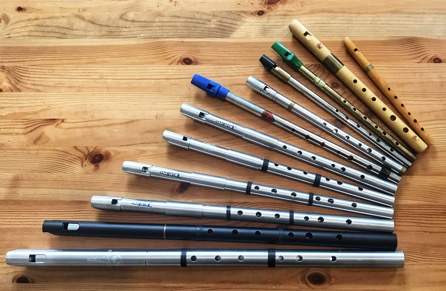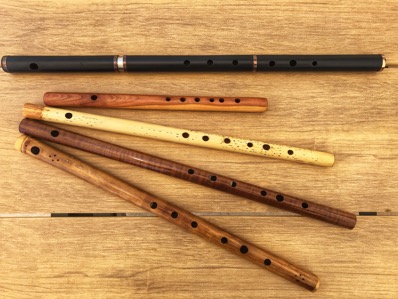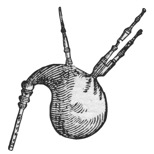One-on-one online and in-person lessons for traditional and historical bagpipes, tin whistles and flute.

My Name is Timo Bark and I offer private lessons for tin whistle and traditional and historical bagpipes. Lessons are held in person in Livadia, Cyprus or online via Zoom or Skype.
I am a musicologist from Germany and have been involved in traditional and historical music for a good 30+ years. I have been teaching professionally full-time since 2013.
I offer lessons for the following musical instruments:


In addition to lessons for the tin whistle, I also offer lessons for keyless flutes. These instruments usually have six finger holes and the fingering is very similar to that of the tin whistle. However, the sound is produced via a mouth hole, just like on the modern flute. This requires a completely different approach from that of recorders, for example. As a result, flutes have considerably more dynamic possibilities and the timbre can be influenced in a completely different way.
The instruments are known as "Irish Flute" / "Simple System Flute" and have a firm place in the traditional music of Ireland as well as Scotland, Brittany and some parts of northern Spain.
These flutes are available in different keys. Besides traditional music, I also teach "medieval" flute. These instruments are mostly similar to the traditional ones and are made of wood or reed.
Renaissance Bagpipe (Hümmelchen)

Today's Hümmelchen are mostly free reconstructions or based on historical illustrations. The fingering usually corresponds to that of the recorder.
The Hümmelchen is a very reliable, low-maintenance and versatile instrument with either one or two tunable drones. Due to the wide range of musical possibilities, a large repertoire can be developed. The Hümmelchen combines excellently with other quieter instruments like strings, recorders or quieter woodwinds.
"Medieval" Bagpipes
These instruments are also free reconstructions based on medieval illustrations. The instrument became widespread primarily through the popular "medieval markets" and the medieval rock scene.
The medieval bagpipe usually has one to three drones and a loud-sounding, conical chanter. 'A' has established itself as the standard tuning, with 'A' as the keynote of the chanter. However, instruments are also made in lower and higher tunings, as well as quieter instruments with cylindrical chanters. The fingering usually corresponds to that of the German recorder.
Many playing and ornamentation techniques from other bagpipe traditions can be transferred to the medieval bagpipes, enabling expressive playing.
For beginners there are inexpensive practice pipes, similar to the Scottish practice chanter.
Hakan & Timo: A Dance Macabre on two medieval Bagpipes
A Scottish melody played on the Medieval Bagpipe
Scottish Bagpipes

Lessons always begin on a practice chanter. On this you learn the fingering, the typical ornamentation technique and, as a rule, each new melody. It is therefore not a beginner's instrument but a "training instrument" that accompanies the piper throughout his life.

My first practise chanter. Purchased in Edinburgh about 30 years ago.